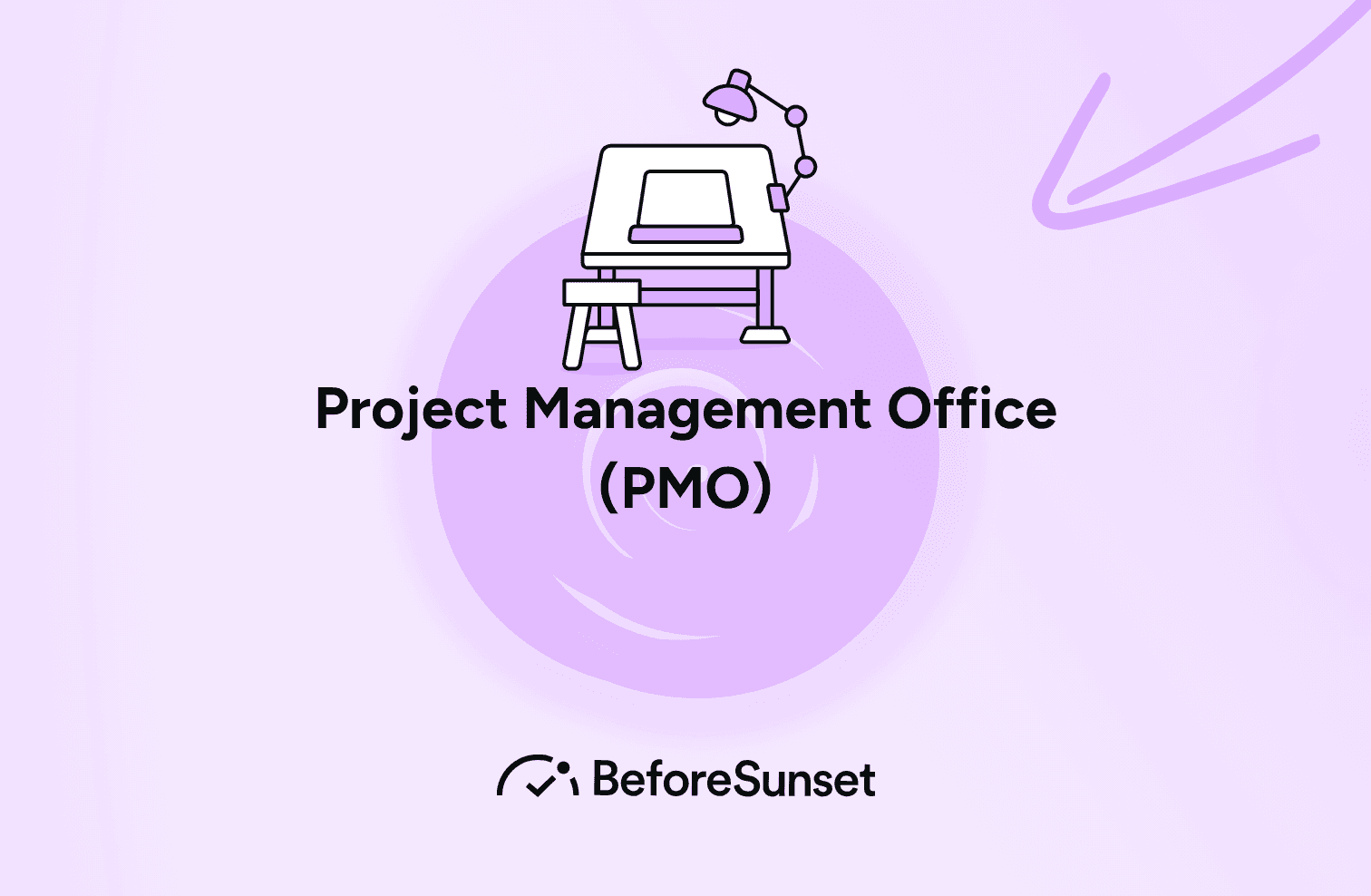We would all want to work in a team with the best of the best. Unfortunately having a talented team is not enough by itself to have a successful business. Their individual talents will go to waste If they are not working like a well-oiled machine. Failure is imminent without communication, time, and project management.
If you are having these problems and you desire efficiency, PMO can be the thing your business needs. Let us teach you the PMO meaning.
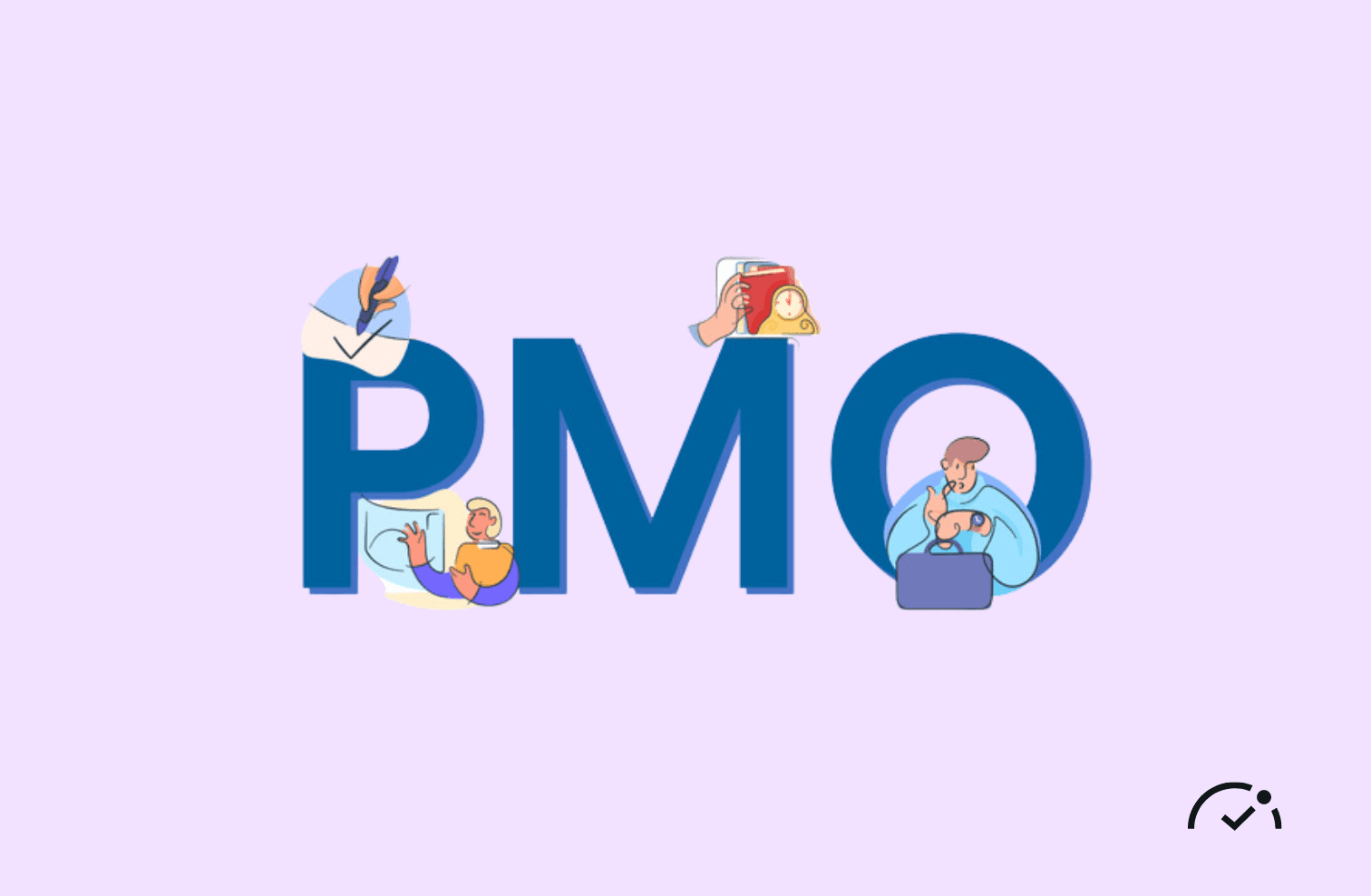
What Does PMO Acronym Mean?
There are many reasons a project can fail especially in big companies. Project Management Office (PMO) is comprised of professionals with expertise in managing projects and helping them be successful. They can be internal or external groups, which means that they can be selected from your company, or you can hire professionals. Either way, if you are having trouble with your project that is the place to go.
Their popularity has been increasing since the 2000s for a reason. This group strategies the best course of action for projects. Then they show how teams can apply this to their works with the utmost efficiency. With their scheduling techniques. missing deadlines and not knowing when to start a project becomes a thing of the past. It is shown that having an office dedicated to project management can increase the success rate of projects.
Optimization is key in PMO, they are here to make sure everything is on track. This team of professionals keeps an eye on every member, project, and metric. With extensive research and analysis, they figure out what can make your project fail. Pinpointing the problem early on keeps the team on the right path.
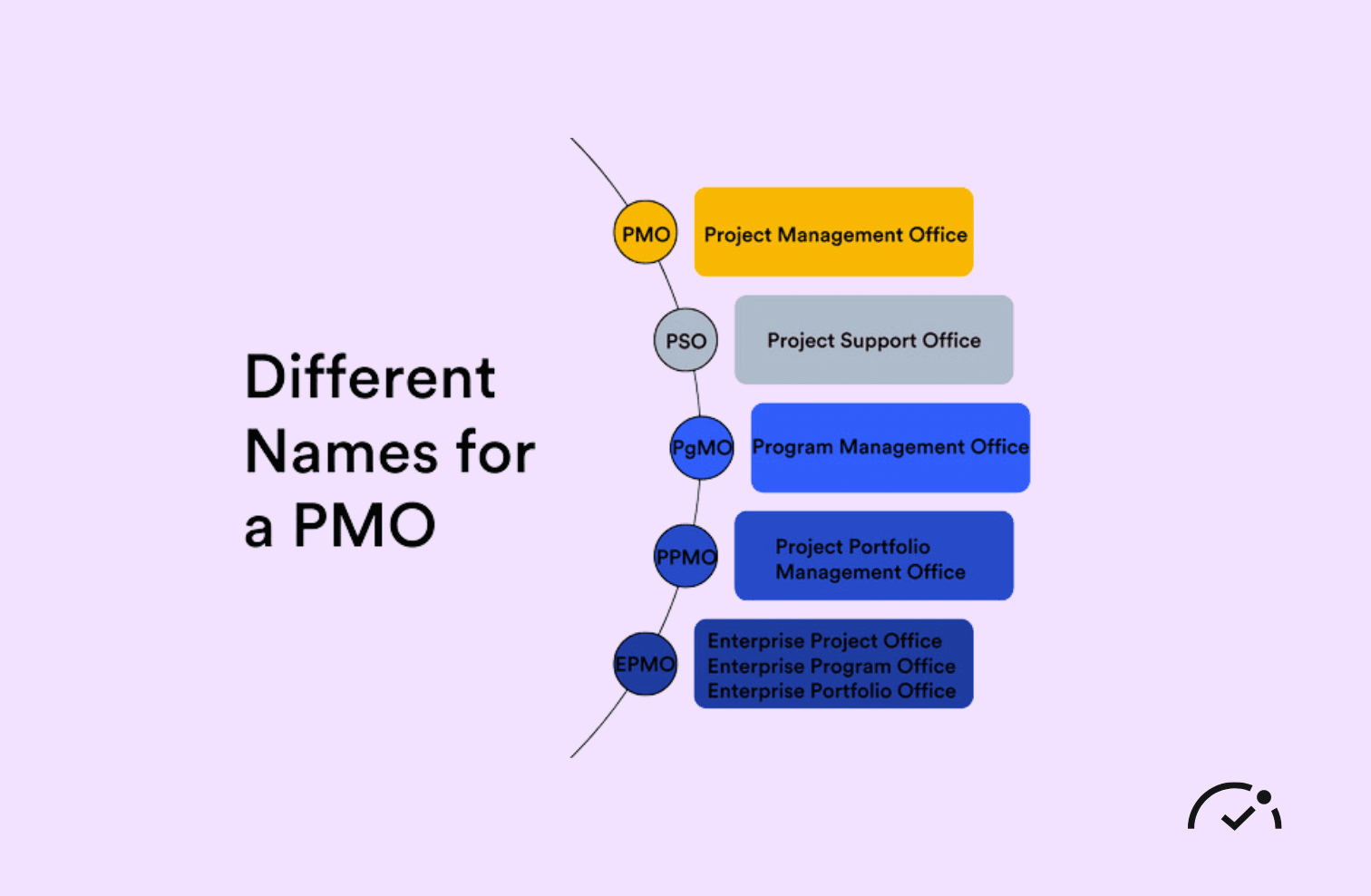
What Are The 3 Types of PMO?
PMO is not a one size fits all. Every company can have different needs and expectations from a Project Management Office. Since their shortcomings may differ from business to business. Even teams from the same company can have trouble completing their projects for different reasons. This resulted in the creation of three types of PMO which are supportive, directive, and controlling.
Supportive PMO: They are a helpful hand in times of need. This is not as strict as other ones, a supportive PMO lets team members decide If they need help or not. They cannot enforce rules but aid them with tools and consultations.
Directive PMO: Project Management Office holds full control of your projects. Everything has to be done according to their rules. There is no flexibility, unlike the supportive PMO.
Controlling PMO: Think of this as the best of both worlds. PMO is here to help and determine the ground rules. They help with necessary tools and training, but you still have some freedom doing the project.
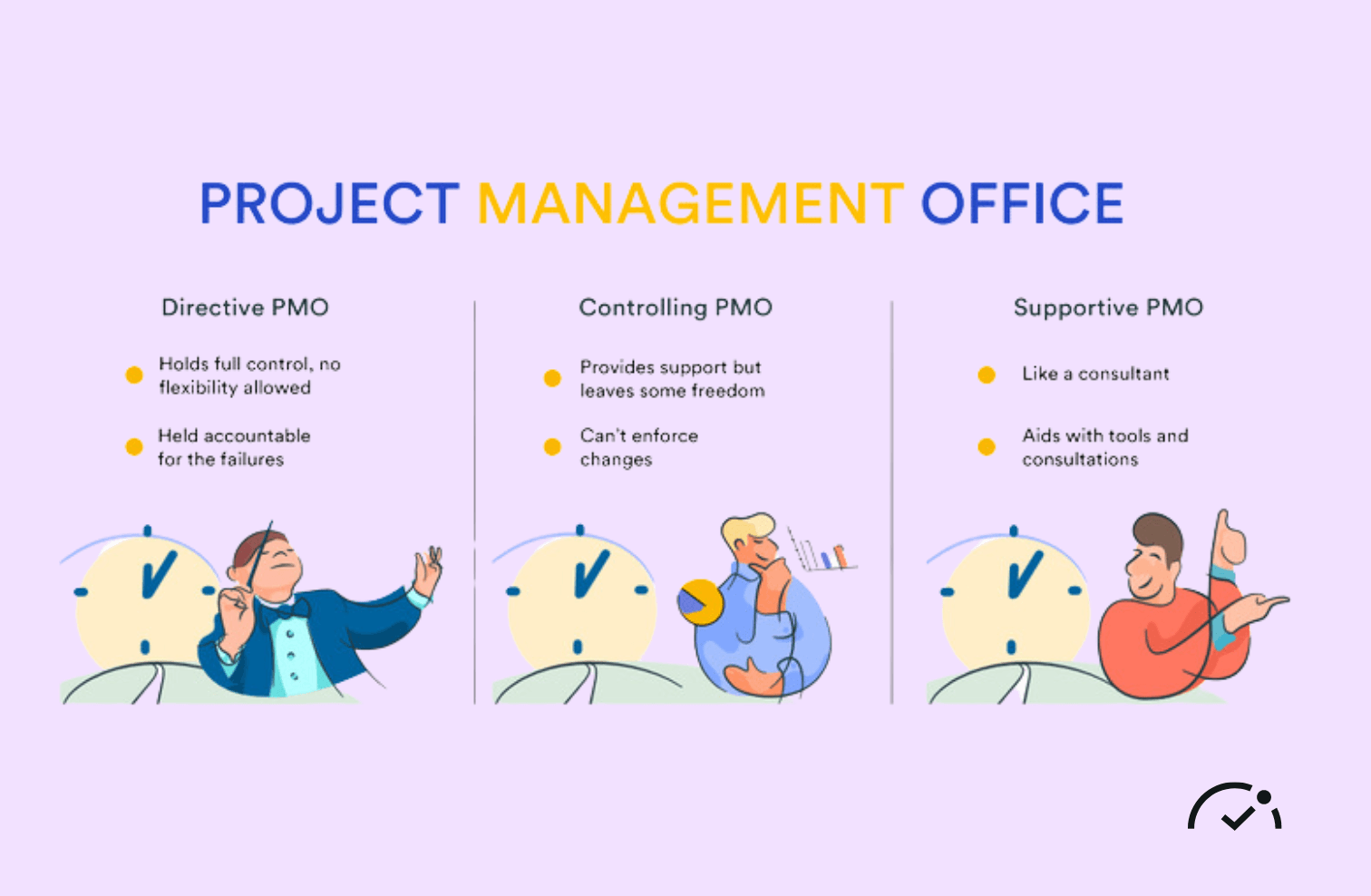
How to pick the best type of PMO for you?
Now that you know about the different types of PMOs it is time to choose the most suitable one. Think about the needs of your job, is it a government job that requires utmost care or is it a small company where freedom is valued? Controlling PMO is the most common among these, it is the happy medium with flexibility, but you know they have your back. If you are working for a smaller company a supportive PMO could be the best for you, but a stricter place like a government office may prefer a directive type.
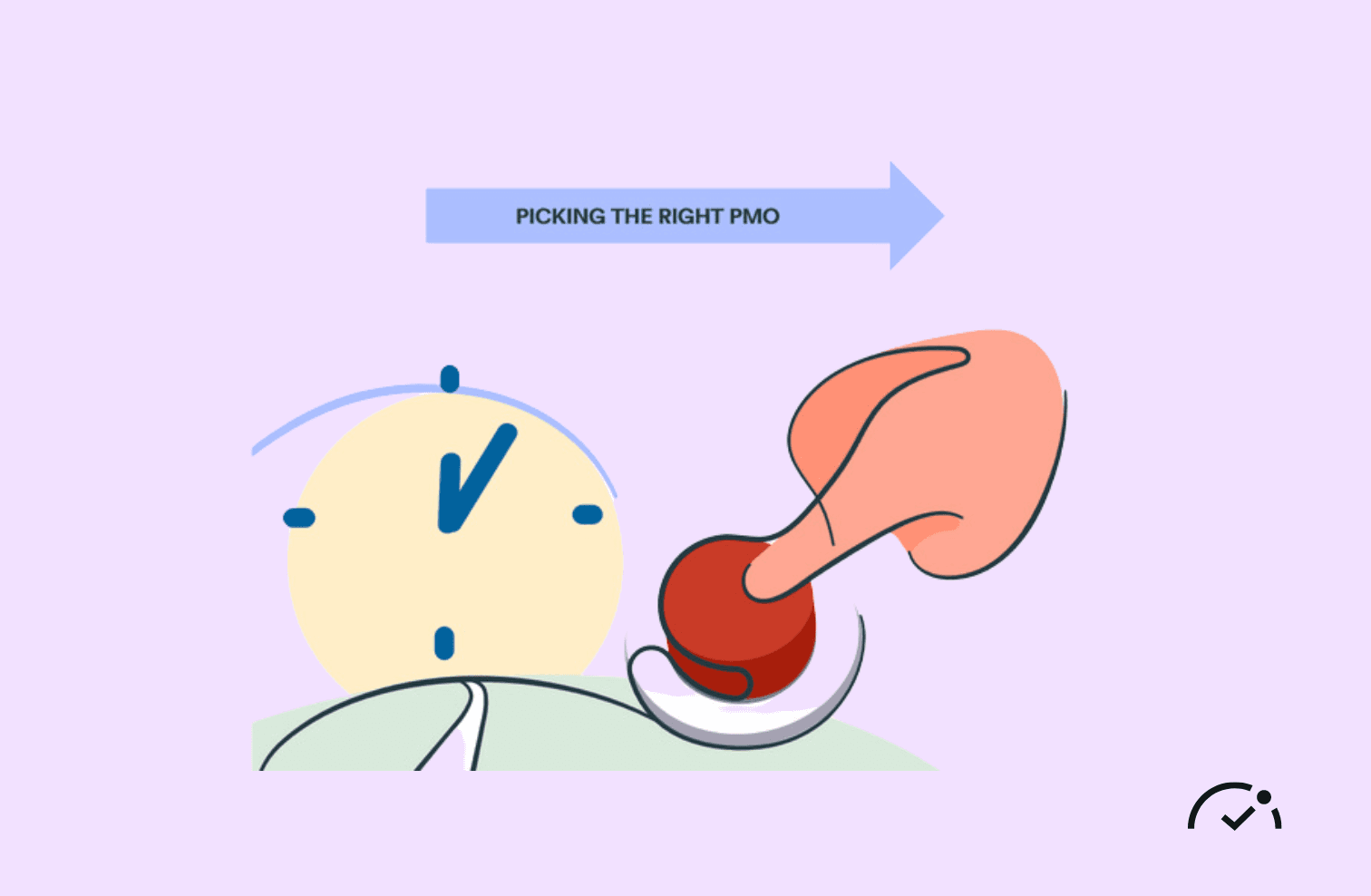
What Are The Responsibilities of a PMO?
Project Management Office is your guide to efficient working. Their primary duty is to eliminate wasting time, money, and most importantly your efforts. With their help, you focus on your work and not worry about the risk of failing a project. But how do they do these things? Here is a list of things they do to make your life easier:
Optimize project management for the team’s benefit
Make project selection easier
Reduce the stress that comes from deadlines and project failure
Manage the risks
Keep track of finances and make sure no project is over the budget
Following what team members are doing
Make sure there are no miscommunications that might result in complications
Keeping documents and reports on projects
Providing a project history
Keeping track of what is beneficial for the team and what is not
Review the project and give feedback
In short, they do the heavy lifting, so all your team has to do is focus on completing the project. Productivity is increasing while everything is in check. No more dwelling on details. PMO has your back.
What is the role of a PMO team?
The role of a PMO (Project Management Office) team is to support and optimize project management activities within an organization. The PMO team provides guidance, resources, and best practices to project managers and teams, helping to ensure that projects are executed efficiently, effectively, and in alignment with organizational goals and objectives.
Specifically, the PMO team may be responsible for:
Developing and implementing project management policies, procedures, and methodologies that are aligned with organizational goals and objectives.
Providing training, coaching, and support to project managers and teams, helping to ensure that they have the necessary skills and knowledge to deliver projects successfully.
Monitoring project progress and providing regular reporting to senior management, stakeholders, and project teams.
Identifying and managing project risks, issues, and dependencies, and developing mitigation plans where necessary.
Facilitating communication and collaboration among project stakeholders, including project managers, team members, sponsors, and external partners.
Managing project budgets and resources, ensuring that projects are delivered on time, on budget, and to the satisfaction of stakeholders.
Supporting the development and maintenance of project portfolios, including project prioritization, resource allocation, and portfolio reporting.
Overall, the role of the PMO team is to provide centralized leadership, guidance, and support to project management activities within an organization, helping to ensure that projects are delivered successfully and in alignment with organizational goals and objectives.
Is PMO an Admin Job?
Actually, a PMO (Project Management Office) has more to do than merely handle paperwork. The PMO performs administrative duties associated with project management, such as generating project status reports and managing project documentation, but it also plays a strategic role in an organization's effort to support and advance its project management procedures.
With an emphasis on fulfilling project objectives, timetables, and budgets, the PMO is essential in making sure that projects are carried out successfully and efficiently. Identifying and controlling project risks, implementing uniform project management techniques throughout the company, and building a culture of continuous improvement are all part of this. It also include supporting and guiding project managers and teams.
As a result, the PMO is an essential part of efficient project management inside a firm, rather than merely an administrative position.
Is PMO a Difficult Job?
After reading everything there is to know about PMOs, it can start sounding like a very interesting job option. When it comes to the question of whether or not PMO is a difficult job we cannot give an answer to that. It depends on your skill set, problem-solving abilities, and the company you are thinking of working with. It has many elements you must keep in mind. Different types of PMOs will have different expectations from you. If you are thinking that you will thrive in a job like a supportive PMO but being a directive PMO is not a good fit for you, you might want to consider your decision. This job can be stressful due to the nature of every task depending on you. Yes, you will be taking the stress off the shoulders of whichever team is working on that company but now you will be responsible for everything.
If you have made your decision on following this career path, we recommend you get proper education on being a part of a PMO. You can get the necessary courses on the internet, Google offers a professional project management certificate for free.
How a Project Management Office Can Supercharge Your Success
In today's dynamic business landscape, achieving strategic goals hinges on the successful execution of projects. But managing a growing portfolio of organizational projects, each with dedicated teams and specific life cycles, requires a high degree of control. This is where a Project Management Office (PMO) steps in, offering a strategic advantage.
Aligning Projects with Corporate Strategy
A PMO acts as a central hub, ensuring project alignment with your corporate strategy. By defining and implementing standardized processes, the PMO fosters consistency and minimizes unnecessary costs. Agile approaches are championed, allowing for ongoing improvement and adaptation in a fast-paced environment.
Boosting Project Operations and Delivery
The PMO doesn't just set the stage; it empowers project teams to deliver. It provides vital resources, including training in advanced skills and project management standards. This fosters a culture of critical focus, ensuring project teams have the single focus needed to excel in the delivery process.
A Catalyst for Success
The benefits extend far beyond individual projects. A PMO equips program managers with the tools and knowledge for successful execution across the entire project portfolio. This strategic alignment ensures projects directly contribute to achieving strategic objectives.
Effective Communication: The Cornerstone of Success
The PMO champions effective communication across all levels. Regular communication, not just within project teams but also with business unit leaders and senior management, keeps everyone informed and fosters an environment of business agility.
From Planning to Completion: A Holistic Approach
The PMO takes a holistic view, overseeing the entire project lifecycle – from strategic planning to practical completion. Key performance indicators (KPIs) are established to measure project performance and identify areas for improvement. This data-driven approach ensures project culture is constantly evolving for the better.
The PMO Advantage: A Social Media Post for Your VP
"Excited to announce the launch of our new PMO! This dedicated team will ensure our projects align with strategic goals, optimize resource allocation, and drive successful project delivery. #ProjectManagement #BusinessAgility #StrategicAlignment"
Unlocking Success at Scale
As your organization scales, the PMO's role becomes even more crucial. It facilitates the sharing of resources across projects, enabling efficient management of larger-scale initiatives. Risk management becomes paramount, and the PMO equips teams with the tools to proactively identify and mitigate potential roadblocks.
The PMO: A Linchpin for Digital Transformation
In today's digital age, a PMO plays a vital role in driving digital transformation initiatives. By ensuring standardized processes and effective management, the PMO empowers business units to achieve their business goals.
Building a Team for Success: Additional Employees vs. Current Projects
The PMO can assess the need for additional employees or identify opportunities to leverage the skills of current project teams for future projects. This ensures a focus on maximizing existing talent while addressing critical resource needs.
The Hallmarks of Success: Successful Projects and Delivery
The PMO plays a vital role in fostering a culture of project success. By implementing best practices and providing ongoing support, the PMO helps teams achieve successful project completion at a portfolio level.
A Degree of Control for Business Leaders
Business leaders gain a greater degree of control with a PMO. Through standardized reporting and clear communication, the PMO provides valuable insights into project performance, allowing for informed decision-making.
Sharing Knowledge and Expertise
The PMO acts as a central hub for sharing knowledge and expertise across project teams. This fosters a collaborative environment where teams can learn from each other and continuously improve their skills.
Accomplishment of Projects: A Focus on Completion
The PMO maintains a laser focus on project accomplishment. By tracking progress, identifying roadblocks, and implementing corrective actions, the PMO ensures projects are delivered on time and within budget.
Cultivating a Culture of Excellence
The PMO goes beyond project management; it cultivates a culture of excellence within the organization. By promoting best practices, continuous learning, and effective communication, the PMO empowers teams to achieve their full potential.
A Foundation for Long-Term Success
The PMO is more than just a project management tool; it's a cultural shift. By fostering a culture of collaboration, communication, and continuous improvement, the PMO lays the foundation for long-term success across your entire organization.
Who Needs a PMO?
Does your company have trouble meeting the deadlines? Is communication so bad that nothing is getting done? Does no one know which tools to use for project management? If your answer is yes, PMO may be the thing you need.
Especially big companies have so many tasks in hand that it becomes common for them to have mix-ups and miscommunications. It is hard to keep in contact with every different department. An internal or external project management office can help you put your teams in line. It keeps productivity high and costs low. You will see the benefits once customer satisfaction increases.
Of course, several companies are content with the way they do their work. So, a PMO may not be suitable for them because a team of project managers changing their system can lead to decreased morale and performance.
PMO - Project On Office Management
According to the PM Solutions research that in 2016 85% of companies were working with PMOs while this number was 48% in the year 2000. So why did it become so popular? When the data is compared to the previous years, productivity and task completion rate have increased in companies that started working with PMOs. Since the deadlines are not missed anymore and everything is so efficient, profit increased. This made both teams and customers happy.
If your team is having trouble with project scheduling, miscommunications and budget problems keep this information about Project Management Offices in mind.
BeforeSunset AI: Manage Projects While Prioritizing Your Wellbeing
Feeling overwhelmed by project deadlines? BeforeSunset AI goes beyond typical project management tools to empower you with a mindful approach.
Plan Like a Pro:
Time-blocking: Craft your ideal workday using time blocks, either with AI assistance or manual creation. Sync it seamlessly with your calendar for a clear roadmap to success.
Effortlessly Manage Tasks:
Break it Down: Divide your project into manageable chunks and assign tasks with due dates to team members. Ensure everyone's aligned and focused on timely completion.
Boost Your Productivity:
Track Your Time: Monitor time spent on each task with BeforeSunset's built-in timer.
Analyze and Improve: Gain valuable insights from your Personal Analytics to identify areas for optimization and become your best project planner.
Stop juggling projects and start thriving. Download BeforeSunset AI today!

